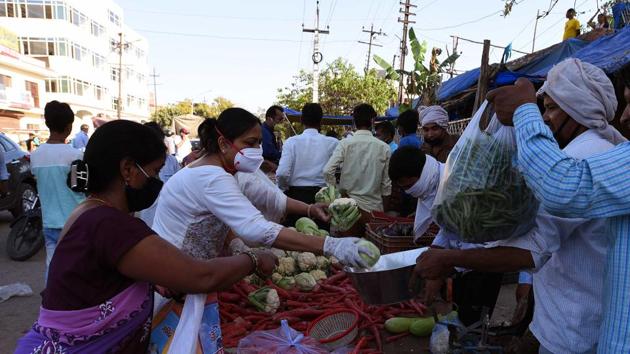Decoding the impact of ECA amendments
The Essential Commodities Act 1955, which the bill amends, is mainly used to curb inflation by allowing the Centre to enable control by state governments of trade in a wide variety of commodities.
Parliament on Tuesday passed the Essential Commodities (Amendment) Bill 2020, the third legislation linked to the Narendra Modi government’s plan to liberalise agricultural trade and usher in broader farm reforms.

What does it do: The Essential Commodities Act 1955, which the bill amends, is mainly used to curb inflation by allowing the Centre to enable control by state governments of trade in a wide variety of commodities. The bill removes virtually most primary food items, such as cereals, pulses, oilseeds, edible oils, onions and potatoes, from the list of “essential commodities”.
How did ECA work: States can dictate quantities traders can store and also restrict the movement of any commodity deemed “essential”. Under the law, the government generally imposes stock limits to discourage hoarding of items, including food commodities, such as pulses, edible oils and vegetables.
Was ECA effective: Several experts have argued the law was handy in the 1960s and 1970s when India was still a net importer of food. The Economic Survey 2019-20, which devoted a full chapter to the issue, states that government intervention under the ECA 1955 often distorted agricultural trade while being totally ineffective in curbing inflation.
“First, frequent and unpredictable imposition of blanket stock limits on commodities under Essential Commodities Act (ECA) neither brings down prices nor reduces price volatility. However, such intervention does enable opportunities for rent-seeking and harassment,” the Economic Survey had said. Rent-seeking is a term used by economists to describe unproductive income, including from corruption.
For instance, the survey notes that stock limits on dal (lentils) in 2006, sugar in 2009 and onions in September 2019 spiked “the volatility of the wholesale and retail prices instead of smoothening them”.
Since large stocks held by traders can be outlawed under the ECA 1955 anytime, they tend to buy far less than their usual capacity and farmers often suffer huge losses during surplus harvests of perishables.
Such laws have kept poor farmers poor by restricting opportunities to export when global crop prices go up, according to a 2018 study by the Organisation of Economic Cooperation and Development (OECD), a grouping of 36 countries, and the New Delhi-based research firm ICRIER.
What’s the rationale for the bill: “While India has become surplus in most agricultural commodities, farmers have been unable to get better prices due to lack of investment in cold storage, warehouses, processing and export as entrepreneurs get discouraged by the regulatory mechanisms in the Essential Commodities Act, 1955,” according to the statement of objects and reasons laid out in the bill.
How does the new bill work: The bill now requires that imposition of any stock limit on agricultural produce must be linked to prevailing inflation, war or famines or a grave situation. “A stock limit may be imposed only if there is a 100% increase in retail price of horticultural produce and 50% increase in the retail price of non-perishable agricultural food items,” it says.
The increase will be calculated over the price prevailing immediately preceding twelve months, or the average retail price of the last five years, whichever is lower.
And the stocks of agribusinesses equivalent to their export order will not be subject to any limits.
“This is such a wide range for a price trigger to invoke the ECA. Many things are left vague. Price triggers or price levels should have a reference to a locality. Suppose that a big food exporter says it has an export order from Ethiopia of, say, 1 lakh tonne? How will the government verify if that is a fake indent or a genuine one?” asked Kavitha Kuruganti of the Alliance for Sustainable and Holistic Agriculture (ASHA), critiquing the bill.
Get Current Updates on India News, Lok Sabha Election 2024 live, Infosys Q4 Results Live, Elections 2024, Election 2024 Date along with Latest News and Top Headlines from India and around the world.




